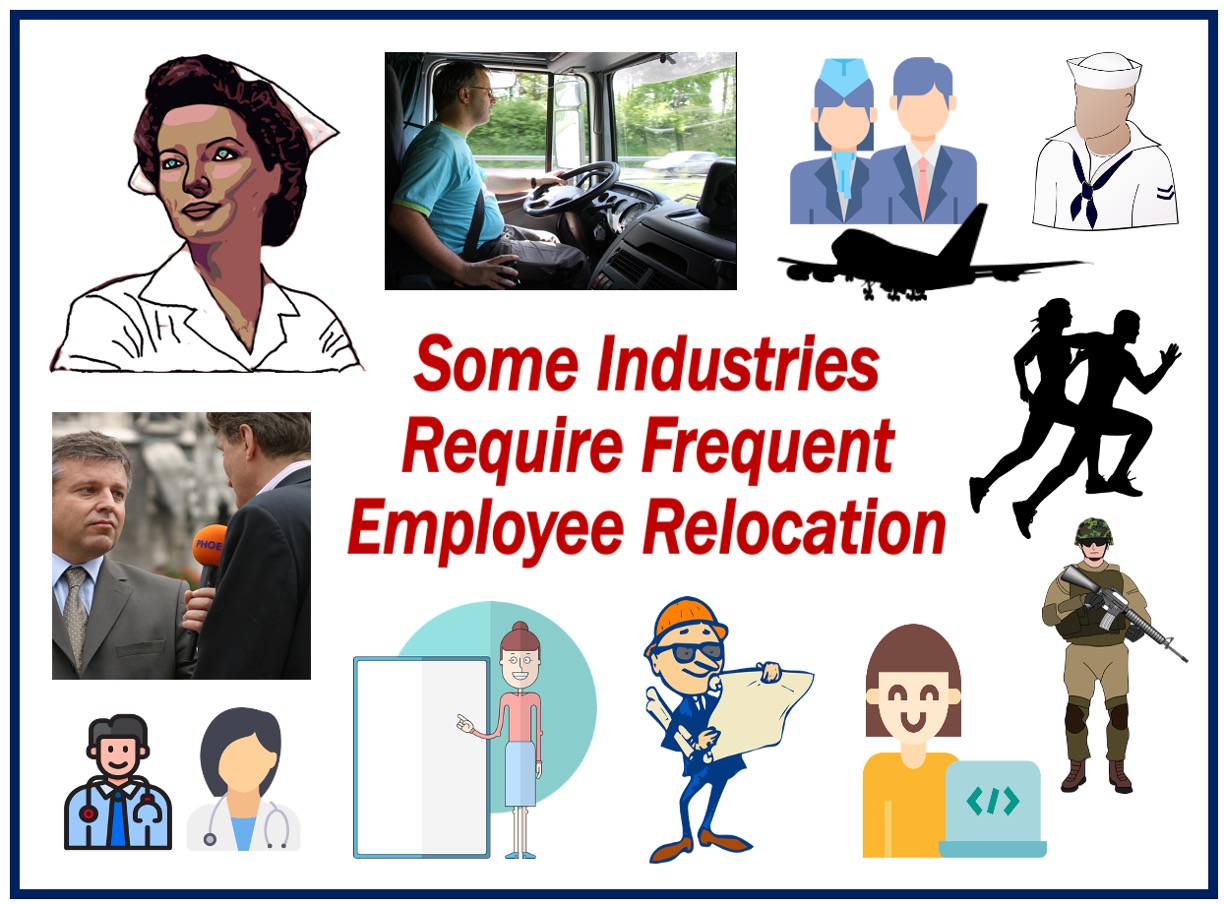Americans are known for moving around a lot. In fact, the average person can expect to move 11.7 times in their lifetime, but these numbers may reduce as remote work becomes more common. However, these roles and industries will always have a high relocation rate.

10 Industries and Roles That Require Frequent Relocation
If you’re an employer or an employee looking to break into the following careers, check out 9kilo’s top 10 moving companies. You’re going to need one if you’re constantly relocating!
-
1. Health Industry: Nurses
There are hospitals and medical facilities all over the country that are in desperate need of nurses. While doctors typically stay in one location for most of their lives, nurses often travel in search of better pay, benefits, or job roles. It’s likely nurses will continue to be in high demand.
-
2. Transportation Industry: Truckers
Members of the transportation industry have to be on the move at all times. It’s simply a part of their job description. Truckers often work long hours on the road, going from one city or town to the next. However, truckers will stay close to company headquarters to make traveling easier.
-
3. Pro Sports Industry: Athletes
Pro athletes will never be able to work from home, but that’s exactly how they like it. Whether they’re playing hockey, baseball, or basketball, pro athletes are expected to stay in large cities across the US, usually between games. Olympic athletes also need to travel for long stretches.
-
4. Military: Military Members
Some military members never leave the US, while others are stationed across the globe. Even for those that stay at home, it’s normal for them to move to another state every two-to-three years. If they’re stationed overseas, they may stay until the conflict is resolved or they’re injured.
-
5. Entertainment Industry: Journalists
Plenty of professions make up the entertainment industry, from actors to set designers. Travel journalists also fall under this umbrella, depending on the type of news they’re reporting. As a travel entertainment journalist, you’re expected to stay in multiple countries for most of the year.
-
6. Airline Industry: Flight Attendants
As a flight attendant, you’re always on the move. You can choose to work for a domestic airline, which limits the time you’ll spend overseas, or you can get hired by an interactional company. When you change airlines, you’ll stay at hotels for a day or so before you take another flight.
-
7. Education Industry: Teachers
Teachers, especially earlier on in their careers, move to find stable work. It’s difficult to get a good teaching job in the city, so teachers will typically start in a rural area or township. ESL teachers will live and work all over the world but are often needed in Asia and Africa.
-
8. Industrialization Industry: Engineers
Being an engineer isn’t as stable as you think. While it depends on the field, engineers are often let go after their project completes. Even when they do stay, an engineer may leave to seek job advancements or interesting new roles. They often have to relocate to find gainful employment.
-
9. Marketing Industry: Marketers
The turnover rate in the marketing industry is quite high because the industry moves at a rapid pace. A marketer’s career is filled with short-term contracts, consulting jobs, and freelance projects. New marketers either have to move around often or have a growth mindset to keep up.
-
10. Tech Industry: Software Engineers
Although software engineers can often work from home, most software companies prefer to keep them in-house. For this reason, software engineers are moving around more than any other profession. If they can work from home, they’ll move to a place with a low cost of living.

